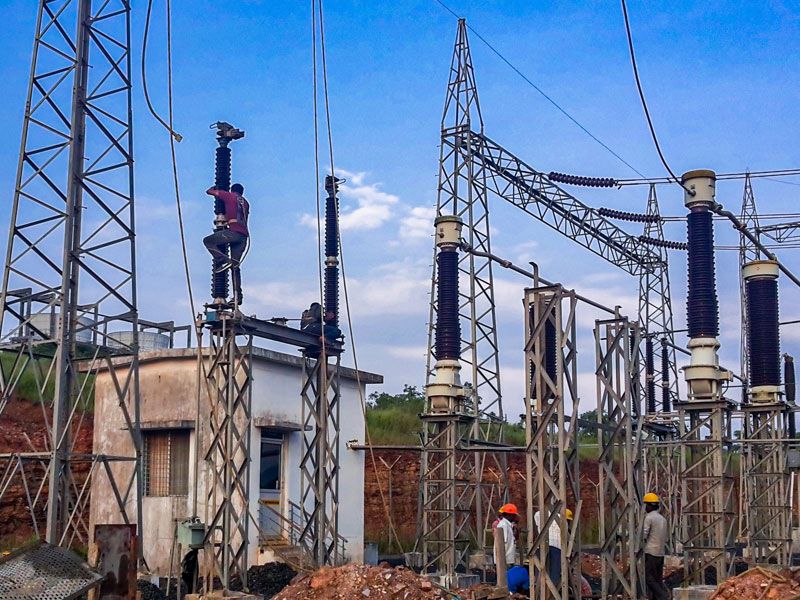Electrical contractor

Top Electrical Contractors in Maharashtra: Expertise Across Mumbai, Navi Mumbai, Nashik, Nagpur, Thane, Pune, and Aurangabad
When it comes to electrical installations, maintenance, and power solutions, choosing the right professionals is essential for safety, efficiency, and compliance. Electrical contractors in Maharashtra offer a wide range of services, catering to residential, commercial, and industrial needs across major cities like Mumbai, Navi Mumbai, Nashik, Nagpur, Thane, Pune, and Aurangabad.
Electrical Contractors in Mumbai
Mumbai, India’s financial hub, requires advanced electrical solutions to meet the demands of high-rise buildings, industrial complexes, and commercial hubs. Electrical contractors in Mumbai specialize in:
- Residential and commercial electrical wiring.
- Industrial power distribution and maintenance.
- Smart lighting and energy-efficient solutions.
- 24/7 emergency electrical support.
With cutting-edge technology and industry expertise, these professionals ensure uninterrupted power supply and optimal system performance.
Electrical Contractors in Navi Mumbai
Navi Mumbai, a rapidly expanding IT and commercial hub, requires robust electrical solutions. Electrical contractors in Navi Mumbai focus on:
- Home and office automation systems.
- Power backup and UPS installations.
- Solar energy solutions and green building electrification.
- Data center and IT infrastructure cabling.
These contractors adhere to the highest safety standards, ensuring reliable and efficient electrical systems.
Electrical Contractors in Pune
Pune, known for its educational institutions, IT parks, and manufacturing units, demands expert electrical solutions. Electrical contractors in Pune provide:
- Industrial automation and electrical panel installations.
- High-voltage power distribution for manufacturing plants.
- Electrical maintenance and safety audits.
- Renewable energy integration for sustainable development.
Their technical expertise supports Pune’s growing infrastructure and industrial needs.
Electrical Contractors in Thane
Thane’s blend of residential and commercial developments requires customized electrical solutions. Electrical contractors in Thane excel in:
- Electrical panel installation and circuit maintenance.
- Energy-efficient lighting for malls and office spaces.
- Smart home electrical setups and automation.
- Emergency electrical repair services.
Their reliability makes them the preferred choice for both homes and businesses.
Electrical Contractors in Nagpur
As a major logistics and industrial hub, Nagpur relies on high-performance electrical solutions. Electrical contractors in Nagpur specialize in:
- High-voltage installations for warehouses and industries.
- Transformer setup and maintenance.
- Solar-powered energy solutions for sustainable power.
- Electrical audits and power quality management.
Their services help businesses maintain an uninterrupted power supply and energy efficiency.
Electrical Contractors in Nashik
Nashik’s industrial and agricultural sectors require specialized electrical solutions. Electrical contractors in Nashik offer:
- Industrial power automation and distribution.
- Electrical solutions for vineyards and agro-based industries.
- Maintenance of transformers and power grids.
- Electrical safety compliance and audits.
These contractors play a crucial role in powering Nashik’s economic and industrial activities.
Electrical Contractors in Aurangabad
Aurangabad’s industrial and tourism sectors demand top-tier electrical services. Electrical contractors in Aurangabad provide:
- Industrial electrical system design and installation.
- Power backup solutions for uninterrupted electricity supply.
- Energy-efficient electrical solutions for commercial and hospitality sectors.
- Electrical safety inspections and compliance services.
Their focus on quality and safety ensures efficient and reliable electrical systems across the city.
Why Choose Electrical Contractors in Maharashtra?
Electrical contractors in Maharashtra are recognized for their:
- Expertise & Experience – Years of experience handling complex electrical projects.
- Safety Standards – Compliance with national and international electrical safety protocols.
- Technological Advancements – Use of modern tools and techniques for efficiency.
- Customer-Centric Approach – Customized electrical solutions tailored to specific client needs.
